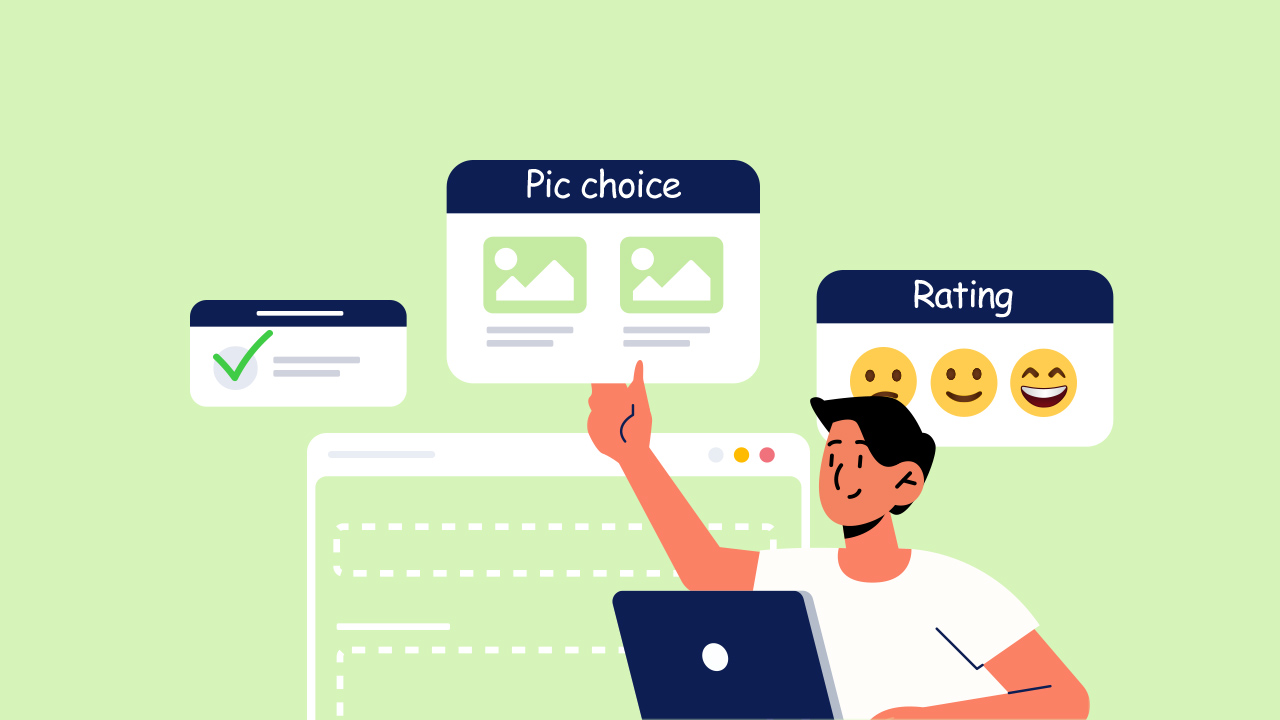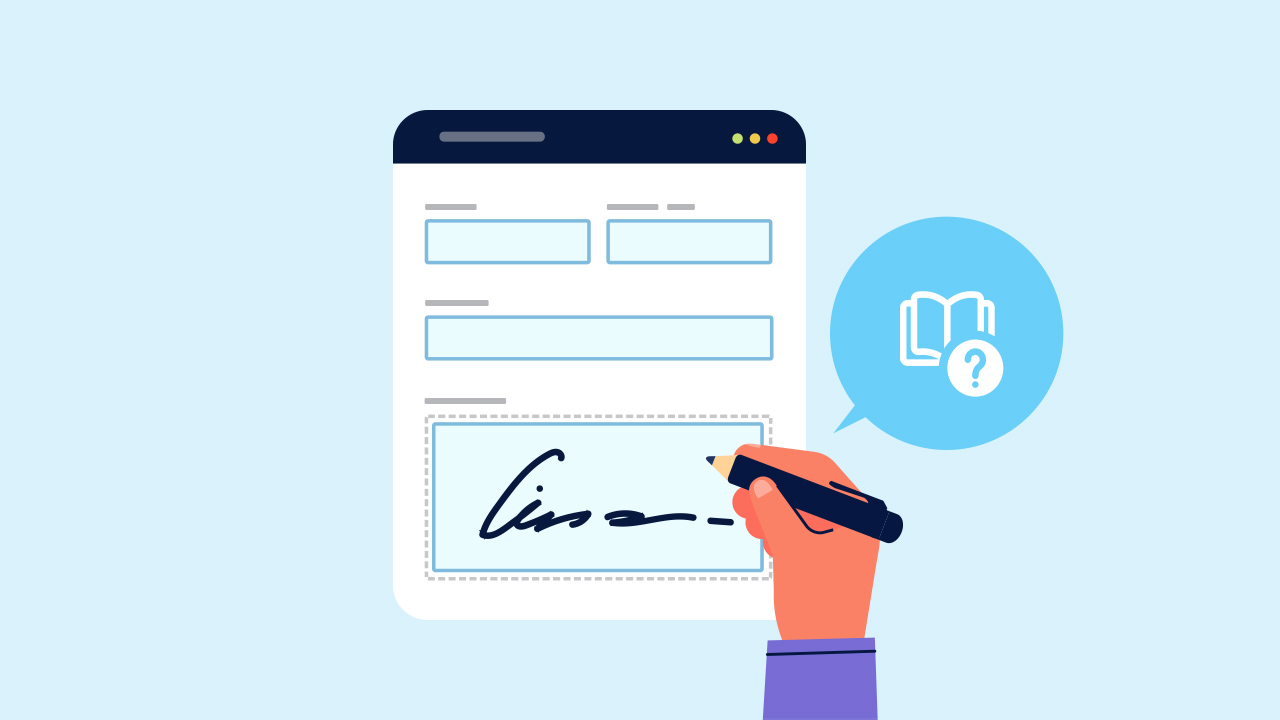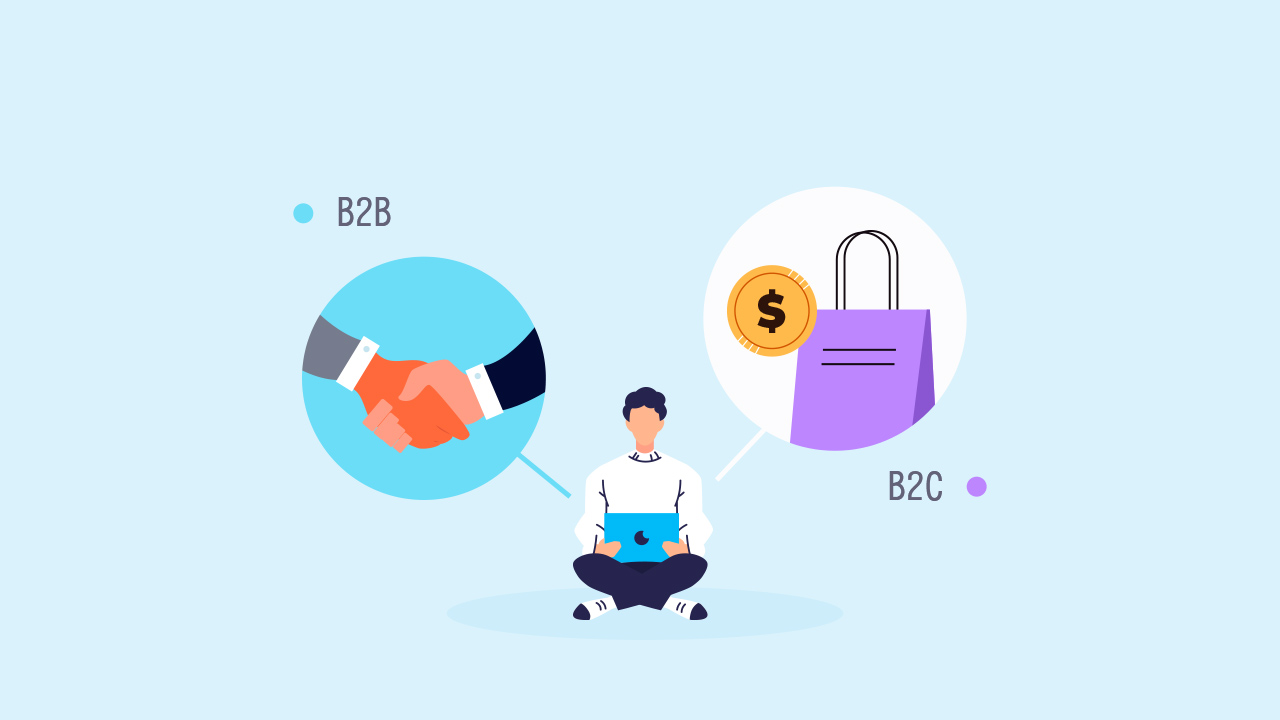
If you’ve been in the marketing industry for a while, you probably have heard of B2B and B2C marketing. Some may say they’re similar, some may say they’re different–both are accurate. There are a lot of differences between B2B and B2C marketing, but the similarities are evident as well. In this article, we will go through the basics of B2B and B2C marketing, and how PlatoForms can empower both of your marketing strategies.
Table of Contents
3. What are the differences between B2C and B2B marketing?
4. What are the similarities between B2C and B2B marketing?
What is B2B marketing? (Business-to-business)
As the name implies, Business-to-business marketing is the selling of products and services to companies. Unlike B2C, B2B involves a larger scale of sales. Some of the examples of B2B scenarios are:
- PlatoForms, a PDF online software company offers online PDF forms services for a travel agency. This travel agency uses PlatoForms’ software to convert PDFs to online forms, turn PDFs into online forms, and send them out to customers who need to fill them out.
- A copywriting agency that offers writing services for businesses.
- A healthcare manufacturer that provides health tools and materials for hospitals.
- An SEO company that offers email marketing and SEO services for start-ups and large companies.
Since B2B clients spend more a large amount of money to acquire services or products from a fellow company, it takes more time for B2B marketers to gain sales. A longer process of engagement and trust is needed, hence, a longer relationship is required. The ultimate bang-for-the-buck? Once trust is gained, a massive return of investment awaits—it’s a one-time big-time opportunity. A B2B transaction is completely different from buying chewing gum impulsively when you were paying on the counter. This transaction is normally a large scale, so it shouldn’t be based on a quick decision. Many things should be considered, many people should make a decision. This decision should entirely be based on logic and character–no emotions and heart talk at all, unfortunately.
That chewing gum you bought might provide a little fun to you in minutes, but B2B buys services and products to have a long-term efficiency in their business. A B2B marketer should educate and provide long-term solutions to companies—not just short-term happiness. B2B always aims to solve problems!
When selling products to business buyers, you need to focus on their needs and use them to sell your product. You don’t need to be personally emotional when buying something online. Instead, you want to understand your buyer and his/her organization’s processes. What’s their role? What’s essential to them?
Marketing campaigns that focus on increasing user engagement rather than simply selling products are known as “growth hacks.” Don’t say anything too vague; be specific! Messages that highlight how your products or services save people time, money, and/or resources are likely to be more successful than others. With regard to ROI, what kind of returns can buyers expect from their purchase? For instance, if your business sold productivity software, for example, then you must be able to demonstrate to potential business clients that they will benefit from buying your product by saving them time. As a result of using your software, employees will save time by automating repetitive tasks. As long as this is a major investment for most companies, they’re going to require extensive demos and trials before making any commitments.
What is B2C marketing? (Business-to-consumer)
Since B2C marketing is all about selling products and services directly to consumers, you must always think about the benefit of the product when you’re trying to market something to them. Consumers tend to be more emotional in their buying purchase—they’re more likely to decide emotionally than rationally. Consumers may be looking for something specific when they shop at an eCommerce store, but some people just enjoy shopping in person. Your consumers don’t care for long messages; they just want to know if there’s something good available now.
People aren’t interested in working hard to figure out why they need something. They just want things for free. They don’t care if you’re right or wrong; they just want you to tell them why they need to use your product. When communicating with consumers, your message needs to be clear and concise so they don’t get confused by too much detail. Consumers’ buying processes tend to be simpler than business buyers’. You can buy them for several hours to several weeks.
Some examples of B2C are:
- An Online PDF software such as PlatoForms provides fillable online forms for a student who needs them for her survey project.
- A real estate company that sells houses for families.
- Youtube offers unlimited music for consumers who pay a premium service.
Unlike in B2B, B2C customers don’t have to pay thousands of bucks for a product–they buy products and services for their own consumption and happiness. Since the decision is entirely based on desires and emotions, B2C marketing doesn’t usually go through multiple-step processes in making decisions–they just buy it.
B2C often relies on brand identity and awareness-based building activities, so engagement really matters, but not necessarily a long foundation of trust. Thus, B2C marketers need to provide content that goes straight to the point and offers solutions to basic necessities. In B2B, changes aren’t rapid. It takes time. An SEO company can’t deliver a high-traffic website in a day for their clients. However, B2C is centered on short-term, speedy results.
What are the differences between B2B and B2C marketing?

To go in detail, B2B and B2B marketing’s main differences are:
Emotional vs rational:
B2C clients rely on emotions and desire to purchase.
B2B clients rely on logic and data before purchase.
Short-term vs long-term:
B2C is based on short-term relationships.
B2B requires a long-term relationship with built-in trust in order to make a purchase.
Users:
B2C targets a small group of audience, specifically, an individual.
B2B targets a large audience including departments and companies.
Expensive vs cheaper:
B2C offers a cheaper price for attainable for the general audience.
B2B involves a huge amount of money.
Educated vs happy:
B2C clients want to be happy in order to make a purchase.
B2B clients prefer to be educated.
Long vs short-form content:
B2C clients prefer short and specific content.
B2B clients need longer, detailed, and more informative content.
What are the similarities between B2C and B2B marketing?
Though both have different approaches, B2B and B2C marketing have some similarities. Listed below are applied to both disciplines:
Engagement. Engagement never stops in marketing! To keep the groove in obtaining more sales and more brand recognition, both B2B and B2C clients need to be engaged even after a deal is done. Whether it’s through content or cold calling, your clients appreciate engagement. Customer journey always continues!
Build trust. Both B2B and B2C clients require trust before becoming paying customers.
Buyer persona. Both marketing strategies require identification of the buyer persona, for you to be able to know your clients’ needs and wants. Proper buyer persona targeting can help your business to track the right people and turn them into paying customers in the future.
Features for B2C and B2B marketing
Without the right tools and features, it will be difficult to win in B2C and B2B marketing. Since B2B is different from B2C, features used are also different; but aims to bring one end goal: To increase the business revenue.
Since B2B focuses on businesses, the most common features are CRM integration, email marketing, lead scoring, and lead grading. These features are useful to organize and keep track of sales pipelines and send updates. Business-to-business marketing is all about relationships, and these tools are helpful to strengthen B2Bs–especially emails. Email marketing is a great source for businesses to know what’s new or any updates on your product. On the other hand, it’s completely different from B2C. Since it’s important for B2C marketing to build its brands, B2C marketers use content to engage their audience. Common features for B2C marketing are email marketing, social media marketing, reputation management, and loyalty nurturing. These features are used by B2C marketers to talk more about their product, target a larger market, and establish an excellent brand reputation. Customers who are emotionally engaged to a brand are always hungry for resonating content–hence B2C marketers are more focused to produce marketing based on customer’s desires.
PlatoForms for B2C and B2B marketing
Whether you’re a marketer for B2B or B2C, you will always use PDF. Not just PDF–you need a tool that can utilize your online PDF documents, create fillable forms, organize customer data, and automate tasks. PlatoForms aims to make your marketing strategy even better and more convenient by providing features that will streamline your process. From customer data collection to sending online PDFs for approvals, PlatoForms got your back.
Why should you use PlatoForms for your B2C and B2B marketing?

We support digital. We at PlatoForms support companies’ ongoing digital and paperless policy. Currently implementing a paperless rule in your organization? All your transactions with our software are 100% online–from online forms to collection of payments.
Our features won’t take too much of your time and resources. Far too many PDF software products in this industry are too complicated. The good news? You don’t have to hire an A-list IT just to organize your workflow and maximize PDF. We understand that you need to focus on your business, not waste time on complicated forms. Our features are simple, compatible with all devices, and beginner-friendly–yes, you read that right. Beginner-friendly–this isn’t Adobe Acrobat, people. Our easy-to-navigate features can enable you to do so much for your business such as converting PDFs to online forms, turning PDFs into online forms, allowing your customers to submit PDF forms online, and more.
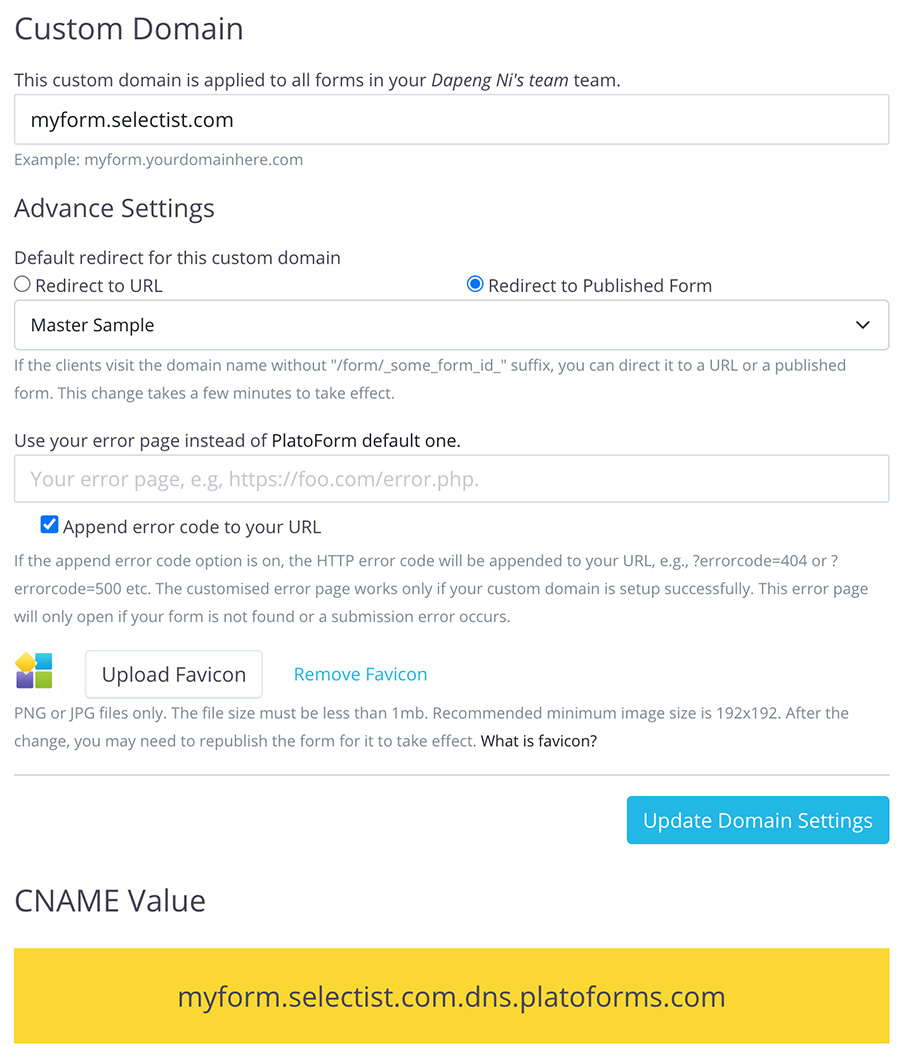
You can white-label your forms. Our online forms are made not for us, but for your business. Send online forms to your customers with your company name for them to identify your brand.
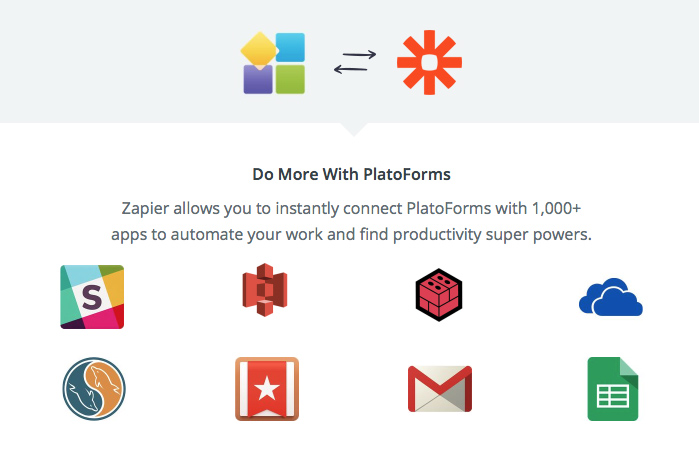
Do more with Zapier. You’re a B2B or B2C marketer who uses Zapier–a common story! You can now connect your online forms with 3,000+ apps integrated with Zapier. Apps aren’t just connected, but data automation also flows from one app to another.
Take a rest with our restful API. With an API feature, your business can achieve so much more–download PDFs, restore your data, even submit forms! Your business can finally get rid of the manual and welcome the automatic–API.

We connect with your third-party applications. Whether you’re using Slack to communicate or Stripe to collect payments, we got your back. Your forms are also connected to various cloud drive storage such as Google Drive, DropBox, and more.
Collect e-signatures in minutes. Your business can now send forms with e-signature pads! We also provide a PlatoForms-issued e-signature certificate with the signer’s information and date of signature for your confidence. Click here for a detailed guide regarding our e-signatures.
Key takeaways:
- There is a big difference between B2C and B2B marketing. Both may be similar in some ways, but both require different approaches and marketing strategies.
- B2B targets a bigger audience, a group of people who makes a decision on behalf of their company.
- B2B targets a smaller audience, particularly an individual.
- B2B is entirely based on logic and rational thinking, while B2C is based on emotions and desires.
- PlatoForms caters to both B2C and B2B marketing.
Convert PDF to forms for your B2B and B2C marketing needs with PlatoForms
Need an online PDF software that can help you improve your business strategy? Whether you’re a B2B marketer that targets large organizations or a B2C marketer focused on individuals, you need a tool that can convert your PDFs to online forms, collect payments through forms, and more. Start for free today, it only takes a minute to sign up!



